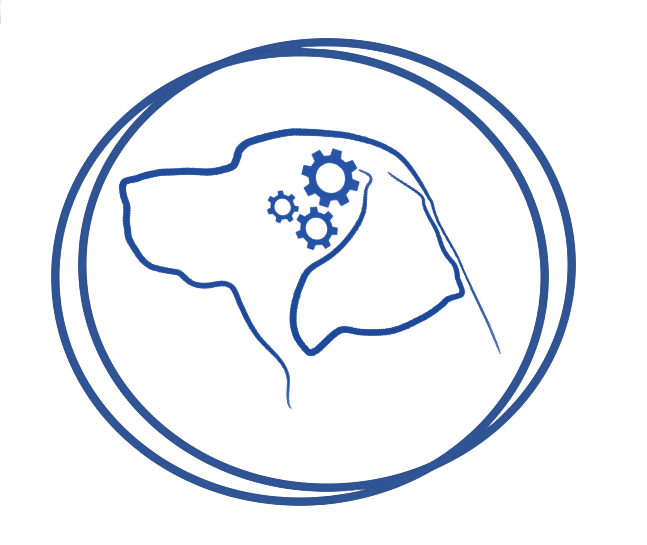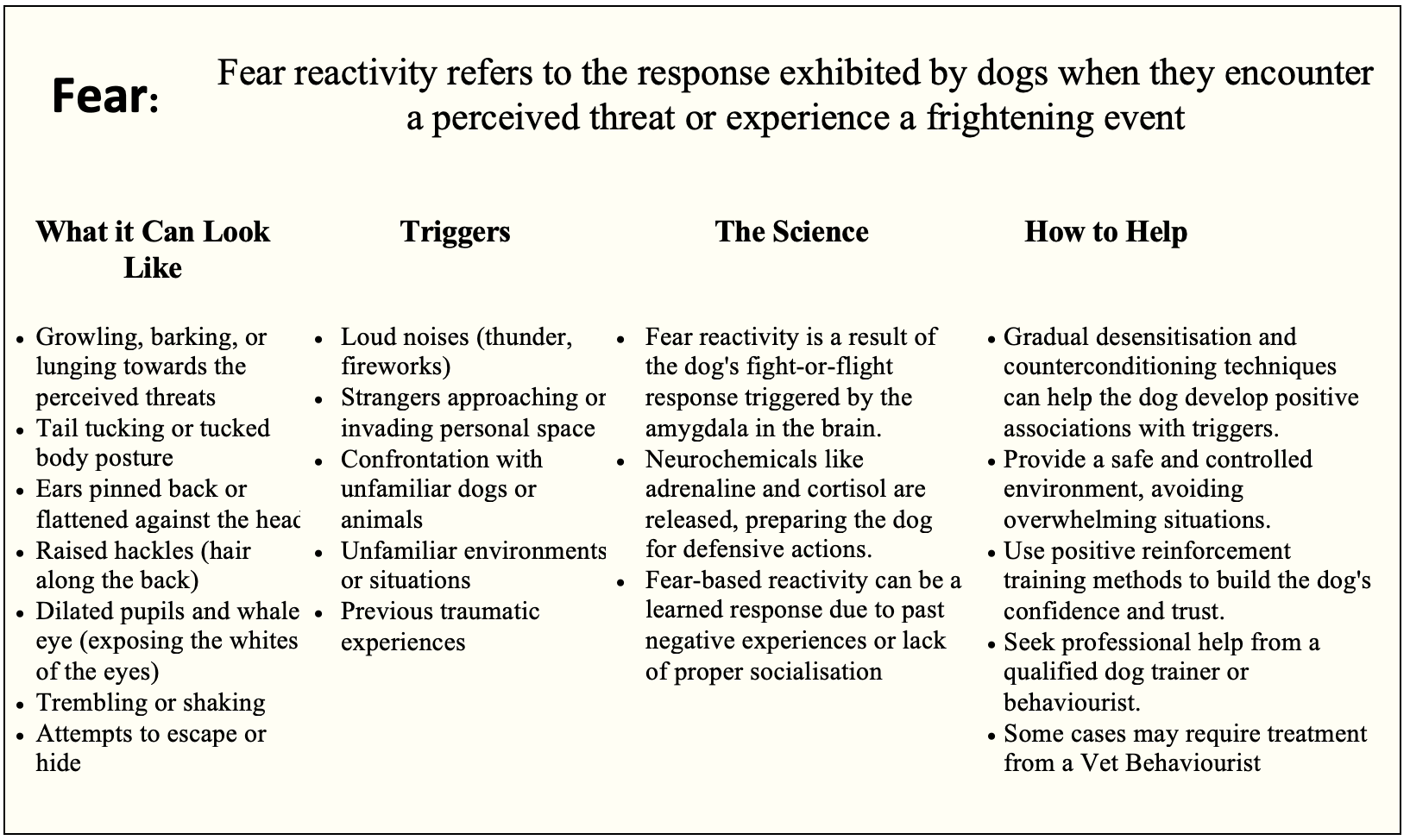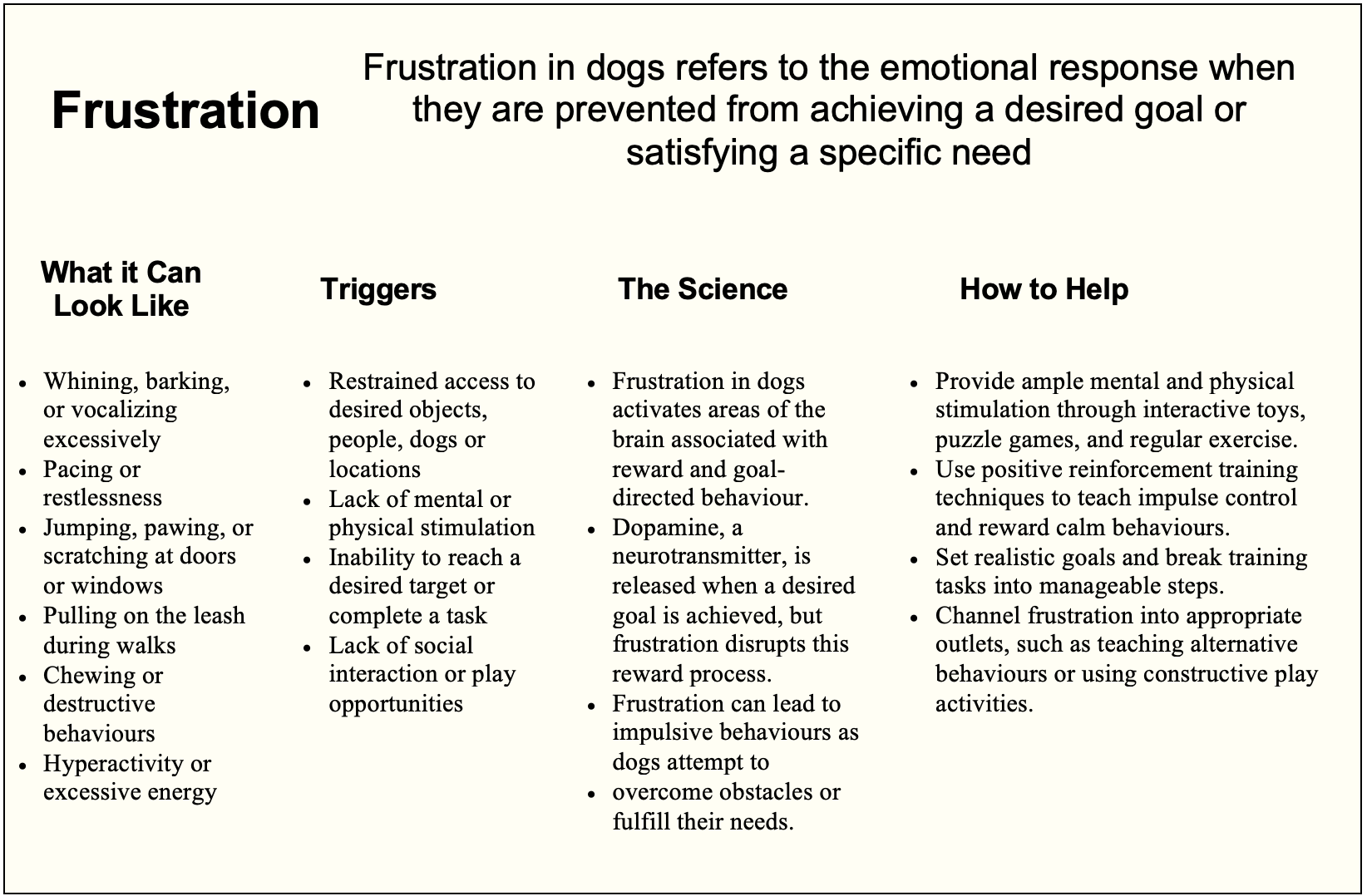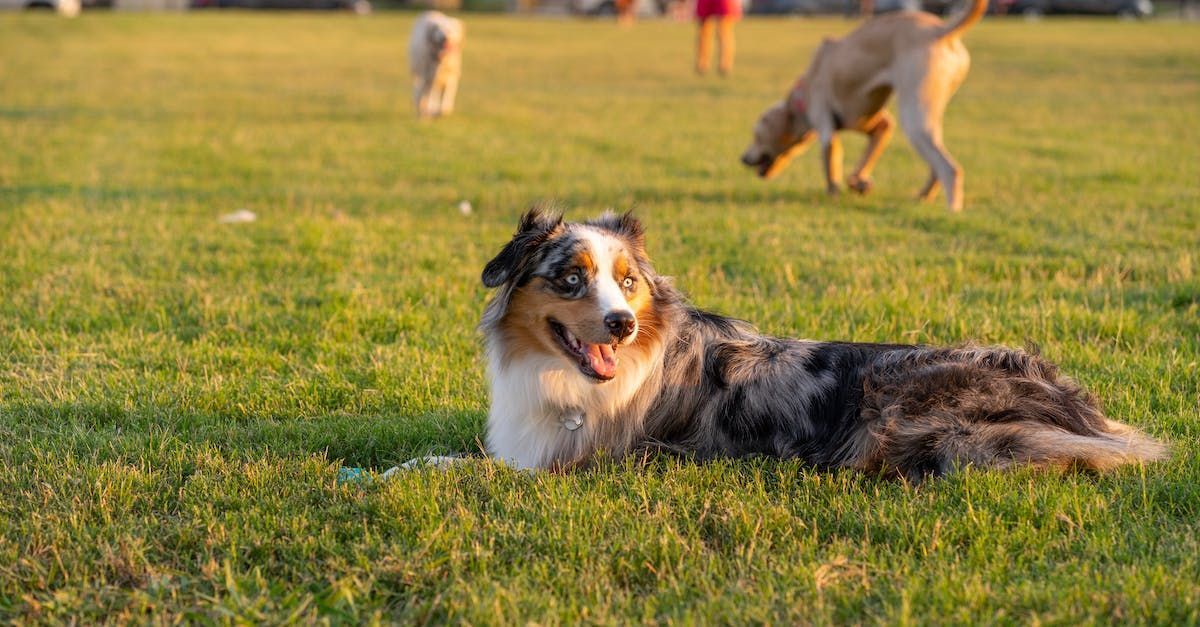Some owners can manage their dog's reactivity, especially the smaller dogs and dogs with low levels of reactive behaviours, however, some owners can find their dog hard work, especially if that reactivity happens when they are out walking. Owners feel frustrated, upset, angry, and even embarrassed, leading to midnight walks or no walks at all.
Understanding Reactivity in Dogs
Victoria Peers
Understanding Reactivity in Dogs
Reactivity is talked about a lot amongst dog owners and trainers but do we know exactly what reactivity is, what it looks like and what causes it? The term itself is a broad term that encompasses a range of behaviours and underlying causes and there are varying interpretations or definitions of what constitutes "reactive" behaviour in dogs.
For me, dog reactivity refers to an exaggerated or heightened response displayed by a dog when encountering a normal stimulus, such as other dogs, strangers, or environmental triggers. It is the observable behaviours, outlined below, that determine whether a dog is considered reactive.
In some cases, frustration, fear, and anxiety can feed into one another, creating a cycle of escalating reactivity. For example, a dog may initially experience frustration due to a barrier preventing them from reaching a desired outcome. This frustration can then trigger anxiety and fear as the dog becomes more apprehensive about the situation. The heightened anxiety and fear can further exacerbate the dog's frustration, leading to increased reactivity.
There is a belief that addressing the behaviour alone will fix the problem and it's true, suppression techniques may temporarily inhibit the reactive behaviour, giving the appearance of improvement. However, without addressing the root cause of the behaviour, the underlying emotional state remains unresolved. This may lead to a false sense of security, if the dog's fear, anxiety, or frustration remains unaddressed, it can potentially result in an escalation of reactivity in the future or cause the dog to redirect their anxiety or frustration onto other targets.
Reactive behaviour is often an expression of distress or discomfort. Addressing the underlying cause helps improve the dog's emotional state, reduces stress and enhances their overall quality of life. It provides a foundation for behaviour modification and training that goes beyond simply suppressing reactive behaviours. By addressing the root cause, the dog learns to develop new coping mechanisms, build resilience, and improve their overall behaviour and responses to triggers providing the best possible outcomes for the dog and owner.






